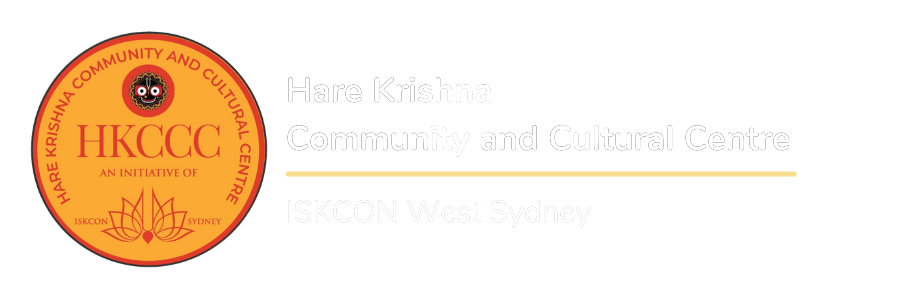Food for Life Global’s primary mission is to bring about peace and prosperity in the world through the liberal distribution of pure plant-based meals prepared with loving intention.
Food for Life Global (FFLG) was founded in 1995 and has a representative office in Sydney and is administered by ISKCON Sydney. With 211 affiliates in 60 countries serving up to 2 million plant-based meals daily, FFLG is the world’s largest food relief organization.
With a mission to address the root cause of all social issues through teaching spiritual equality in practice and precept, our projects also include health education, eco-farming, schooling, animal rescue and animal care.
Food for Life Global Goals
- To support plant-based (prasadam*) meal distribution to the disadvantaged, malnourished and victims of disaster (natural or manmade), wherever there is a need in the world.
- To help establish pure food prepared and served with loving intention as a viable means to create peace and unity in the world.
- To produce promotional and training materials for the development of Food for Life projects worldwide.
- To represent Food for Life to the government, media and public through public lectures, newspaper articles, the Internet, and email.
- To promote a food culture of hospitality based on spiritual equality
- To raise funds on behalf of Food for Life projects worldwide and to support them with grants
- To coordinate and sponsor emergency vegan relief efforts conducted by Food for Life volunteers
FFL Peace Formula
Since eating food is one of the two main functions of the tongue and so central to our survival, it is logically one of the most effective mediums to initiate change in consciousness. Each of us has had the experience of sitting down to a meal cooked with love and felt an immediate transformation of consciousness followed by a feeling of reciprocal love for the person that prepared the meal. The fact is that food, when prepared with loving intention, can communicate in any language. Such food has the ability to break down barriers and turn anger into love, fear into trust, and ignorance into enlightenment.
When you are living consciously, beginning with conscious eating, you will do so in all your thoughts and actions. Your life will be consistent and in harmony with your environment. You will complement your environment and not disrupt it.
The Basics
Let’s face it, food is the most basic necessity of life. Its only purpose is to nourish the body, mind, and soul. Food, therefore, should give us life, cleanse our body and uplift our spirit. Eating food should never be just about fueling the physical body.
According to all Yoga traditions, food that is old, decomposed and consisting of dead flesh will pollute the body and consciousness, while food that is fresh, alive and nutritious will enrich the body, cleanse the mind and satisfy the spirit.
Furthermore, when you recognize the equality of all beings, you will naturally want to share the bounty of the earth with others and give up all selfish tendencies. World hunger is a case in point: the issue is not a lack of food, but the inequitable distribution of resources. For instance, 35.5% of all grain production in the world is fed to livestock and not humans.
Of course, world hunger is a very complex problem, but without a doubt, if humans learned to look past racial, religious and ethnic differences, there would be no scarcity anywhere in the world. What one village lacked in its ability to be sustainable, another village could contribute through free knowledge, labor exchange, or bartering. Unfortunately, the modern capitalist system breeds greed and dishonesty, and thus stands in the way of a conscious, sustainable society.
Honouring all
The truly conscious person does not disrespect other living beings; rather, if you are truly conscious, you honor the environment, respect all and love your own body, which you treat as if it were a blessing or “temple of God.” If you are truly conscious, you live your life in full awareness of your connection to your surroundings. Such a spiritual perspective is the foundation of India’s Vedic culture of hospitality. The conscious person fully embraces a socially responsible and environmentally respectful lifestyle. By becoming aware of your human responsibility to maintain and protect the environment and other forms of life, you will learn to love your brethren and not exploit them by eating them. The same applies to your choice of clothing, cosmetics, cleaning materials and habitat. All should be chosen carefully so that the least amount of harm is inflicted upon our environment.
The Tongue
This journey in raising our consciousness begins with and ends with the tongue. Never underestimate the power of the plate or the power of the spoken word. What you put on your plate is as much a political statement to the world as it is a mirror of who you really are. You can tell much about a person by what comes out of his mouth when he speaks and what he consumes as food.
Food for Life founder Swami Prabhupāda often gave the example of a dog on a throne. “If you throw a shoe, then the dog will leave his throne to chew the shoe,” he would chuckle. Similarly, although an individual may claim to be enlightened or a great moralist, actions speak louder than words, and soon enough those actions will always reveal their true nature. The tongue will always lead the other senses either to purity (and thus liberation) or to debauchery and entanglement in samsara (the cycle of birth and death).


